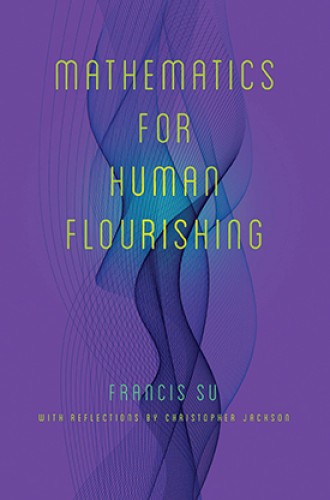I wish Francis Su had been my third-grade math teacher
Su’s book is about math and human flourishing. It’s also about how to be a teacher.
My instinct when I first saw Mathematics for Human Flourishing was avoidance. “I’ve never been very good at math,” I told myself.
My math insecurity goes all the way back to Mrs. Vinneycombe, my third-grade teacher in Australia, where I was born and raised. We were launching into the deep water of long division and more complicated multiplication, and I was out of my depth. My incomprehension was incomprehensible to Mrs. Vinneycombe. She decided it was sink or swim time. She brought me up to the front of the class and had me stand immediately next to where she was seated at her desk—well within her reach.
I was to perform my math problems right there at her desk. Every time I failed to figure out the problem before me, she would whack me across the back of my legs with her trusty wooden ruler, and I would begin again.
Needless to say, I have always had difficulty associating mathematics with human flourishing.
For all of us math-challenged types, or at least for those of us who suffered from pedagogically challenged math teachers, Francis Su’s volume is good therapy. It left me wondering, What if Mr. Su had been my third-grade math teacher? By the end of the book, I was convinced that Mrs. Vinneycombe had robbed me of a more fruitful relationship to mathematics, and perhaps (if I follow Su’s logic) to life.
“This is a book,” he writes, “that grounds mathematics in what it means to be a human being and to live a more fully human life.” From there he works out his thesis by walking readers through a series of topics he identifies as “basic human desires,” the fulfillment of which are signs of human flourishing: exploration, meaning, play, beauty, permanence, truth, struggle (a chapter I found especially evocative), justice, freedom, community, and love. By the time I finished the last chapter, I felt as if a whole new relationship with mathematics was possible.
The book originated in a speech Su gave in 2017 when he was president of the Mathematical Association of America, a professional organization dedicated to advancing the understanding of math through teaching and community. In the opening chapter, Su writes:
To miss out on mathematics is to live without an opportunity to play with beautiful ideas and see the world in a new light. To grasp mathematical beauty is a unique and sublime experience that everyone should demand. All of us—no matter who you are or where you’re from—can cultivate mathematical affection.
Su weaves the connection between mathematics and flourishing with examples from his experience as both a learner and a teacher of math—stories that speak of success as well as failure. He draws on the wisdom of great thinkers, from Aristotle to Simone Weil. He sprinkles his narrative with puzzles related to everyday life, enticing readers to mathematical exploration. (Thankfully, he provides an addendum with hints and solutions.)
Each chapter concludes with a letter of response from Christopher Jackson. Since the age of 21, Jackson has been an inmate in a high-security federal prison, where he is serving a 32-year sentence for a series of armed robberies. After he had been in prison for seven years (during which time he taught himself algebra, geometry, trigonometry, and calculus), he wrote to Su about his love of mathematics and asked Su to help him learn more. A correspondence began. The letters from Jackson (along with the epilogue, which is a conversation between the two of them) bear witness to the flourishing of life that results from relationships between teachers and students around a shared love of mathematics.
Which brings me to the lasting impact Su’s narrative had on me. As I finished the book I found myself reflecting less on mathematics than on what is required of me if I am to be a teacher worthy of the name. I am never called upon these days to tutor anyone in mathematics (which, as my adult children would readily testify, is a good thing). But teaching is critical to my role as a pastor. I am constantly engaged with people of all ages who feel intimidated by the practice of prayer, the study of scripture, and the exploration of theology—who feel that all such things require an aptitude they lack.
As I read, I found myself reflecting on how I have gradually stepped back from my role as a teacher. Based on conversations with my peers in ministry, I suspect many of them would admit the same. Perhaps this is a sign that we have lost our love of the great truths of our faith and let go of our conviction that the teaching and learning of such truths is crucial to human flourishing.
Su is out to convince us that our failure to love mathematics is not a failure of mathematics. It’s a failure of teachers who have lost their love for math, who no longer have a sense of its relationship to life, and whose passion for communicating that love to their students has withered.
In the end, I read Mathematics for Human Flourishing as an extended meditation on what it means to be a teacher. Everyone whose calling includes teaching could do with such a meditation.






